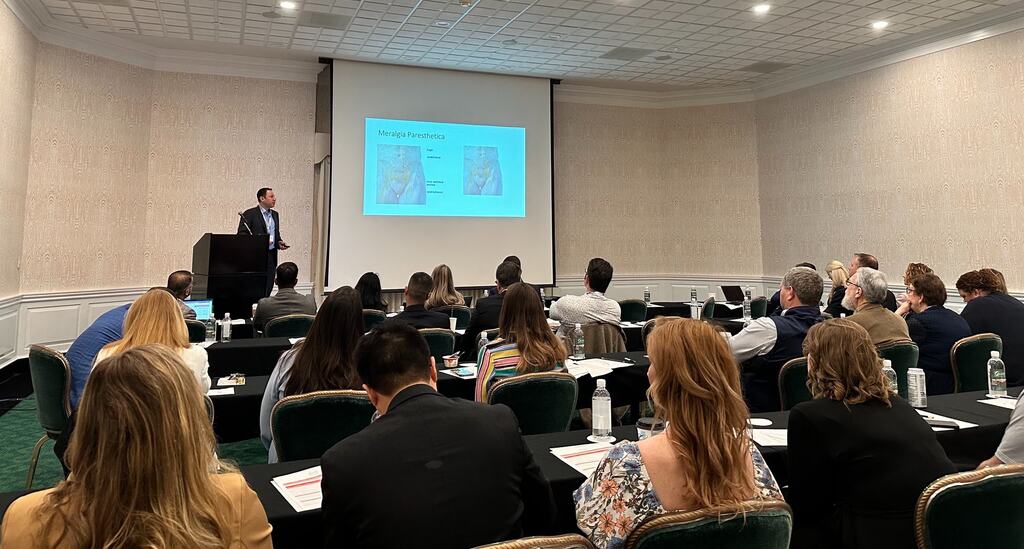In the ever-evolving landscape of healthcare, continuous medical education (CME) plays a pivotal role in keeping healthcare professionals abreast of the latest advancements and best practices. One crucial area that demands constant attention is pain management.
Chronic pain affects millions of people worldwide, and healthcare providers need to stay well-informed about the most effective and ethical approaches to address this complex issue.
Understanding the Significance of Pain Management
Chronic pain poses a significant burden on both patients and the healthcare system. It can lead to diminished quality of life, increased healthcare costs, and a higher risk of mental health disorders.
Recognizing the importance of addressing pain comprehensively, healthcare professionals are turning to Continuing Medical Education courses specializing in pain management.
The Evolution of Pain Management Education
This education has undergone a significant evolution over the years, reflecting advancements in medical knowledge, changes in societal attitudes toward pain, and an increasing emphasis on multidisciplinary approaches.
Historical Perspectives
To appreciate the current state of pain management education, it’s essential to delve into its historical roots. Early medical practices often lacked a nuanced understanding of pain, leading to inadequate treatments and patient outcomes.
The evolution of this education mirrors the broader developments in medical science, ethical considerations, and patient-centric care.
Integrating Multidisciplinary Approaches
Modern pain management education emphasizes a multidisciplinary approach, acknowledging that pain is a complex interplay of biological, psychological, and social factors. CME courses are designed to equip healthcare professionals with a holistic understanding of pain and the tools to address its various dimensions.
Navigating Pain Management CME Courses
Check out here continuous medical education (CME) in pain management serves as a crucial bridge between evolving medical knowledge and the practical skills needed by healthcare professionals.

Core Curriculum Components
These CME courses typically cover a diverse range of topics, including pharmacological interventions, non-pharmacological approaches, ethical considerations, and the latest research findings.
These courses aim to provide a comprehensive overview while allowing healthcare professionals to specialize in specific areas based on their clinical interests.
Real-World Applications
One of the strengths of CME courses is their ability to bridge the gap between theory and practice. These courses often incorporate real-world applications, allowing participants to apply their knowledge to practical scenarios.
This hands-on approach enhances the effectiveness of the educational experience and prepares healthcare professionals for the challenges they may encounter in their daily practice.
The Impact of Pain Management Education on Patient Outcomes
Efficient pain management is not only a medical imperative but also a critical factor in enhancing the overall well-being and quality of life of patients.
Improving Diagnostic Accuracy
A well-rounded education equips healthcare professionals with the skills to accurately diagnose the underlying causes of pain. This is crucial for developing targeted and effective treatment plans, ultimately leading to improved patient outcomes.
Enhancing Treatment Efficacy
CME courses focus on evidence-based practices, ensuring that healthcare providers are well-versed in the most effective treatment modalities.
This emphasis on efficacy is vital for achieving positive results in pain management and minimizing the risk of adverse effects associated with inappropriate or outdated interventions.
Fostering Patient-Centered Care
Empathy and effective communication are integral components of pain management. CME courses emphasize the importance of patient-centered care, teaching healthcare professionals to collaborate with patients in developing personalized treatment plans.
This approach not only improves patient satisfaction but also enhances treatment adherence and overall health outcomes.

Addressing Contemporary Challenges in Pain Management
It critical aspect of healthcare faces a myriad of contemporary challenges that require innovative solutions and adaptive strategies.
Opioid Crisis: Navigating the Balancing Act
The opioid crisis has brought significant challenges to pain management. CME courses delve into the ethical considerations of opioid use, educating healthcare professionals on responsible prescribing practices, risk mitigation strategies, and alternative approaches.
This knowledge is essential for mitigating the risks associated with opioid medications while ensuring that patients receive adequate pain relief.
Integrating Technology for Innovative Solutions
Advancements in technology are transforming various aspects of healthcare, and it is no exception. CME courses explore the integration of technology, such as telemedicine, wearable devices, and virtual reality, into pain management practices.
Understanding how to leverage these tools empowers healthcare professionals to provide more accessible and patient-friendly pain management solutions.
The Future of Pain Management Education
As the landscape of healthcare continues to evolve, so too must the education provided to healthcare professionals, particularly in the field of pain management.
The future of this education holds exciting possibilities, embracing personalized learning paths, collaborative platforms, and a commitment to lifelong learning.

Personalized Learning Paths
Recognizing the diverse needs and backgrounds of healthcare professionals, the future of this education is likely to embrace personalized learning paths.
CME programs may offer modular courses, allowing participants to tailor their educational journey based on their specialization, experience level, and areas of interest within pain management.
Collaborative Learning Platforms
The collaborative nature of healthcare encourages shared learning experiences. Future CME courses may leverage advanced online platforms, fostering collaboration among healthcare professionals from different specialties and geographic locations.
This not only enriches the learning experience but also creates a network for knowledge exchange and professional support.
Embracing Lifelong Learning
The dynamic nature of healthcare requires a commitment to lifelong learning. CME courses of the future may adopt innovative strategies to ensure ongoing engagement and knowledge retention.
This could involve gamification, virtual simulations, and other interactive approaches to keep healthcare professionals motivated and informed throughout their careers.
Conclusion
As we navigate the complexities of pain management in healthcare, continuous medical education emerges as a beacon of empowerment for healthcare professionals. The dynamic evolution of this education mirrors medical advances and a commitment to compassionate care for chronic pain.
Investing in current CME courses enables healthcare professionals to make a difference in patients’ lives for a brighter future.




